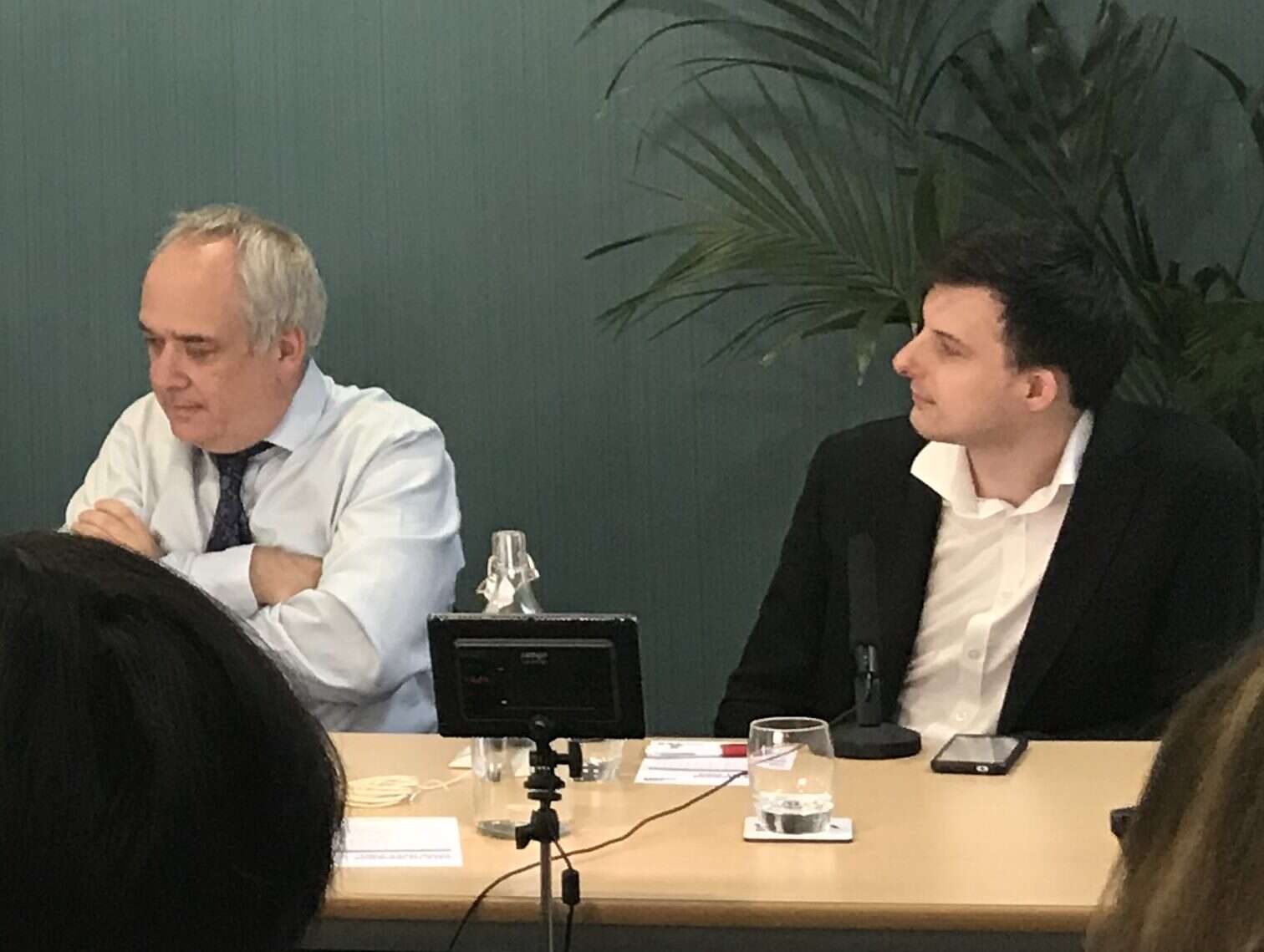
Fact checking articles in a bid to reach the same number of readers as the initial falsehoods they correct is a game that cannot be won, the head of the UK’s biggest fact-checking charity said today.
Full Fact chief executive Will Moy (pictured, right) said his organisation’s work should instead act as a deterrent to public figures from spreading inaccuracies.
It also urges people to ensure the record is corrected, Moy said.
Speaking at The UK in a Changing Europe’s Brexit and the Media event in London today, Moy said those who think fact checking can fully counter incorrect claims after they are published are wrong.
“If the game is that some people will put out false information and others put out true information and the true information has to reach all the people that read the false information, that game is not capable of being won,” he went on.
Full Fact, which was founded in 2010, publishes its own fact checks, a fact checking toolkit for others to use, and pushes for corrections to be made.
Its work helped push the Daily Mail to introduce its page two corrections column in 2011 after disputing claims made by former editor Paul Dacre while the Leveson Inquiry was ongoing.
Explaining Full Fact’s purpose today, Moy said: “It’s a deterrent to people who would misuse information in public life.”
He added that it then takes the step of asking people to correct the record, and thirdly looks for “the patterns in the thousands of fact checks we’ve done and find where does the system go wrong”.
“How do rubbish stories get spread in the media? Is it that journalists don’t have the time or the knowledge?”
He went on to say that there is not sufficient expertise in the media to answer the key questions on Brexit.
“I see intelligent and competent people regularly and ritually humiliated by being asked to produce three minutes or 800 words on something they can’t possibly hope to cover in that amount of time because we don’t have the expertise in the media,” he said.
“The really big institutional question to answer is where is that expertise going to come from?”
He also pointed to the fact that “the number of important things in the Brexit debate is very small”, including the Good Friday Agreement and the lack of a Parliamentary majority.
“The sports reporting of politics has lost track of the things that really matter,” he said.
Speaking on the same panel, James Blitz (pictured, left), Whitehall editor at the Financial Times and author of the paper’s Brexit Briefing newsletter, said journalists had failed to sufficiently explain the issues around Brexit.
“My strong view is at the time of the referendum I think the British public was extremely badly informed about the European Union and very uninterested in the European Union,” he said.
“It was well down their list of interests and three-and-a-half years on I think the collective result of all the media work that’s been done is they are still where they were – very, very uninformed about the European Union.
“I think the media, especially the broadcasters but us as well, have a lot of questions to answer about why they failed at that objective explanation.”
He added that he believed broadcasters in particular had failed to carve out enough space for “slow and simple explanation of what was going on given the complexity of the information”.
Although he praised the BBC’s fact checking service Reality Check, he said it has not been made a big enough part of the broadcaster’s output.
Email pged@pressgazette.co.uk to point out mistakes, provide story tips or send in a letter for publication on our "Letters Page" blog
